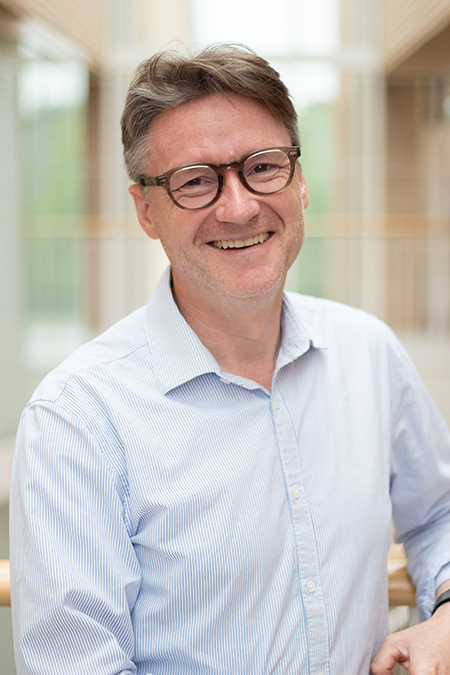Working to understand – and ultimately cure - cardiomyopathies and skeletal muscle diseases
Meet Associate Professor Stephan Lange who investigates the molecular origins and pathways associated with the development and progression of human cardiac and skeletal myopathies.
Driven by early fascination
Associate Professor Stephan Lange has always wanted to be a scientist. The very first time he saw a structure of a protein, he got fascinated by the work of these complex molecules inside cells, and how they contribute to building tissues and organs - and ultimately enable life.
Today his laboratory investigates the molecular origins and pathways associated with the development and progression of human cardiac and skeletal myopathies.
Urgent need for novel diagnostics
Two main projects are currently pursued by the lab - one that studies molecular mechanisms underlying the development of neuromuscular diseases, and one that unravels a cellular signalling pathway involved in heart failure.
The latter project is about the crucial role that the cardiac ankyrin repeat protein Carp1/Ankrd1 plays in the development of Dilated Cardiomyopathy (DCM). DCM is a condition where the heart's ability to pump blood is impaired. The disease counts among the most common causes for heart failure, and it has limited treatment options which do not address underlying causes of the condition. DCM is the most frequent cause of heart transplantation worldwide, and there is an urgent need for novel diagnostics and therapeutics that stop or reverse progression of the disease.
"My dream is to develop novel drugs that improve the lives of affected patients"
Stephan Lange’s laboratory has revealed that genetic loss of Carp1/Ankrd1 in a mouse model for DCM prevented development of the disease. The scientists are now in the process of further investigating the cardiac signalling pathway involved in the development of DCM, with the aim of using Carp1/Ankrd1 as a therapeutic target.
Aiming for breakthrough treatments
Another project in the laboratory studies the role that cellular protein degradation mechanisms play in the development and function of skeletal muscles and motor neurons.
Cellular protein degradation mechanisms remove broken or unwanted proteins from cells in the body. There are two major mechanisms: The ubiquitin proteasome system (UPS) and the autophagy-lysosome system. Deregulation of these systems is associated with many diseases, including neuromuscular diseases, such as nemaline myopathy or amyotrophic lateral sclerosis.
Stephan Lange’s laboratory looks specifically at cullin E3-ligases, which forms one of the largest enzyme families involved with selecting the proteins that are destined for recycling by the UPS. His research team found that loss of the E3-ligase cullin-3 in skeletal muscles of mice leads to death of affected mice after birth due to respiratory failure.
The current research is aimed at detailing molecular mechanisms that involve cullin-3 and its associated proteins in skeletal muscles and motor neurons.
“Many cardiomyopathies and neuromuscular diseases are still incurable, and the molecular mechanisms driving the disease development are still poorly understood. My dream is to develop novel drugs that improve the lives of affected patients,” Stephan Lange says.

5 highlights about Stephan Lange
- Originally hailing from Berlin, also studied, worked and lived in Zurich, London, San Diego and Gothenburg before joining AU.
- Received several awards, including a 'Pathway to Independence' Award from the National Institutes of Health in the USA
- Member of the International Society for Heart Research, and served as Early Career Investigator Council Member in North American Section of the Society.
- Worked for 1 year in plant genetics to study circadian rhythm of RNA binding proteins.
- Keen interest in pedagogical development projects and published 2 articles on the effect of the COVID pandemic on PhD education.